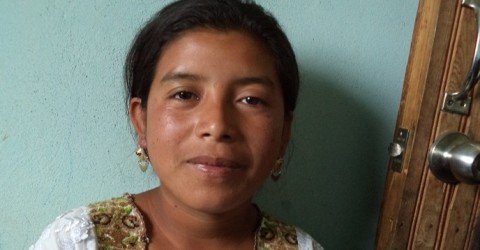
GCED Basic Search Form
Quick Search
当前位置
新闻

Indigenous girls, adolescents and young women in Totonicapán, Guatemala, will assert their right to education in two UNESCO Malala Centers, which will be created as part of a new project supported by the UNESCO Malala Fund for Girls’ Right to Education, set to start in 2018.
Francisca had no choice. When she reached third grade, she had to leave school. She started working in the fields and taking care of her siblings to help her parents. For most indigenous girls in Guatemala living in a poor family with many siblings, studying is out of the question.
As of 2018, the UNESCO Malala Fund for Girls’ Right to Education will support the creation of an educational model for the girls, adolescents and young women of Totonicapán in Guatemala, through the establishment of two UNESCO Malala Centers. The new project, led by the UNESCO Guatemala Office, aims to facilitate the right to education for adolescent girls and indigenous young women, especially those marginalized from education because of gender, ethnicity, rurality and poverty.
In Guatemala, 11% of girls and adolescents between 11 and 19 years old have not received a formal education. In fact, adolescent girls aged 15 to 19 years represent the highest percentage of those who cannot read or write. The average national number of years of schooling for girls is 4 to 6 years; in areas with a predominantly indigenous population, it is 2.6 years on average (National Survey of Living Conditions (ENCOVI) of the National Institute of Statistics (INE), 2015).
Educational systems in many countries can be entrenched in traditional or patriarchal traditions. Guatemala, for example, has not yet established a gender equality policy that supports girls, adolescents and young women in situations of subordination and undervaluation. The new project will therefore also work to strengthen policies that promote girls’ and you women’s education as part of the national education system.
Two municipalities of Totonicapán, Santa María Chiquimula and San Andrés Xecul, were selected for the establishment of the two UNESCO Malala Centers. In these two municipalities, the indigenous population is over 98%, the family poverty index is between 73% and 89%, the illiteracy of young people is over 59%, access to health services is restricted and the number of births per 1000 women is over 69.8.
This new project builds on the “Saqilaj B'e: A clear Path to Assert the Rights of Indigenous Adolescent Girls in Guatemala” project, which was carried out by the education team of the UNESCO Guatemala Office between 2013 and 2017. It facilitated the educational reinsertion of more than a thousand girls and indigenous women from two departments of Guatemala: Huehuetenango and Totonicapán, and Francisca was one of the project beneficiaries. When Francisca turned 19, representatives of the project came to her community and offered her support to continue her studies in the Accelerated Primary Program of the Ministry of Education. With that support, Francisca was able to complete primary school. She is now working as a cook in a cafeteria where she earns money for herself and her family. Her dream is to complete high school and continue studying to become a professional chef. For Francisca, "education is a food that makes us grow".
Lessons have been learned with the Saqilaj B'e project on how to reduce the obstacles for girls and young women from Totonicapán to access education. Today, with the new project, UNESCO wants to continue supporting these girls, adolescents and young indigenous women and many others, so that they can achieve their dreams.
